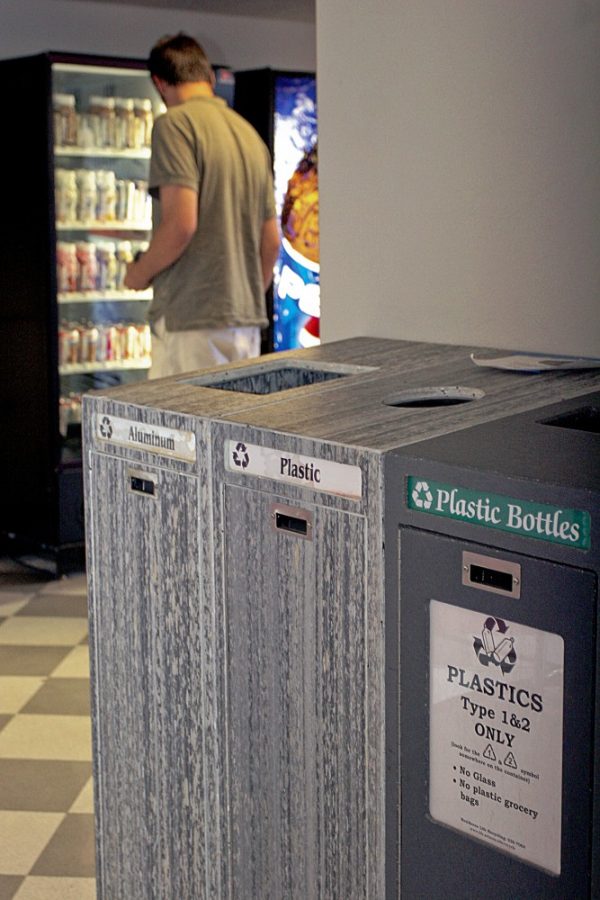With tons of recyclable materials being used at each home sports game, a collaboration between several UA departments aims to make sure they go in the right bins.
As recently as two years ago, there were no recycling bins at any athletic stadium, according to Natalie Lucas, the executive director of Students for Sustainability and a senior studying environmental science and philosophy, politics, economics and law.
Last year, the Arizona Model United Nations, with funding from the Associated Students of the University of Arizona, carried out recycling efforts in the football stadium together with Students for Sustainability.
This year, two more tiers were added to recycling efforts at home football games. Now, in addition to recycling in the stadium itself, Students for Sustainability has added students at the gates to collect recyclable materials from people entering the stadium, as well as adding recycling in the tailgating area — an initiative that hasn’t been implemented before at the UA, Lucas said.
According to Chris Kopach, the assistant vice president of Facilities Management, one of their key efforts this year was “green tailgating.” The program at the UA has been modeled after similar programs at the University of Notre Dame and the University of Colorado at Boulder.
Both Kopach and Lucas said that the eventual goal of the program is to add or increase recycling at every athletic venue, such as McKale Center, the Hillenbrand Stadium and the Rincon Vista Sports Complex.
Recycling in the tailgating area is of high importance to Kopach and Lucas, not only because it has never been done before, but also because of the high amount of recyclable materials associated with tailgating.
According to Kopach, seven tons of recyclable materials were collected after only two football games.
Lucas also stressed the value of educational programs aimed at encouraging recycling at games.
“A lot of people leave stuff in the stands, and it’s hard for employees to go through and pick up all of that,” she said.
Each of the organizations involved have a different role. Students for Sustainability manages the program, which involves 10 student employees. These students collect recycling at the gates and at the tailgate location, and also educate on recycling. Facilities Management provides bins for recycling, and ground and custodial staff help with additional collection and clean-up.
The Office of Sustainability does mostly analytical work, Lucas said. Joe Abraham, the office’s director, said his office provides more of a “supportive role” to Facilities Management and Students for Sustainability.
David Ebertz, a molecular and cellular biology and physiology sophomore, is one of the 10 students working for Students for Sustainability at the football games. Ebertz said the role of the students is to help further develop the new program and to make it more interactive.
“It’s interesting to see how people are reacting to the project, and that helps the project as a whole grow,” Ebertz said.
Kopach emphasized the collaboration factor of the recycling program, and its importance to maintaining recycling efforts on campus.
“It’s really a good team effort,” he said, “And if there’s anything about this program, that would be a key phrase. It’s a true team effort and a really nice collaboration between all these areas.”








